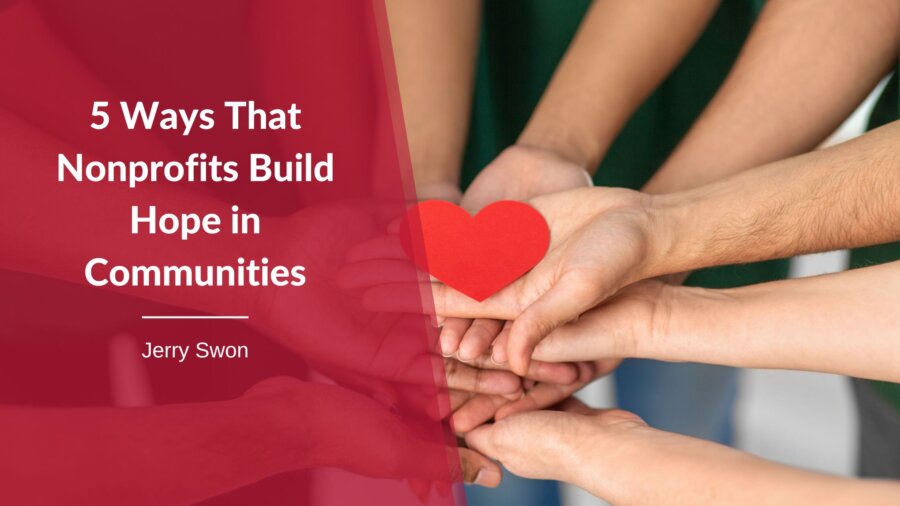Nonprofit organizations are vital in building community hope and resilience by addressing social, economic, and environmental challenges and empowering individuals to create positive change. Through various programs, initiatives, and partnerships, nonprofits can inspire hope, foster collaboration, and promote sustainable development.
Here are five ways that nonprofits build hope in communities:
Providing Essential Services and Support:
Nonprofits often provide essential services and support to individuals and families facing adversity, such as access to food, shelter, healthcare, education, and social services. By addressing basic needs and improving quality of life, nonprofits can alleviate suffering, build resilience, and create a sense of hope among community members.
Empowering Marginalized and Underserved Populations:
Nonprofits work to empower marginalized and underserved populations by providing resources, advocacy, and opportunities for self-advancement. By amplifying the voices of marginalized communities and addressing systemic barriers to equality and justice, nonprofits help individuals reclaim agency, build confidence, and realize their full potential.
Promoting Education and Skill Development:
Education is a powerful tool for building hope and unlocking opportunities for individuals and communities. Nonprofits invest in education and skill development initiatives that equip individuals with the knowledge, skills, and resources needed to thrive in today’s rapidly changing world. Whether through afterschool programs, job training initiatives, or adult education classes, nonprofits provide pathways to success and inspire hope for a brighter future.
Fostering Social Connection and Community Resilience:
Nonprofits play a critical role in fostering social connection and building community resilience by bringing people together, fostering a sense of belonging, and promoting collective action. Through community-based initiatives, events, and collaborations, nonprofits create opportunities for individuals to connect, collaborate, and support one another. By building social networks and strengthening community ties, nonprofits help individuals weather adversity, overcome challenges, and find hope and solace in times of need.
Advocating for Systemic Change and Social Justice:
Nonprofits advocate for systemic change and social justice by addressing root causes of inequality, discrimination, and injustice and promoting policies and practices that advance equity, inclusion, and human rights. By advocating for legislative reforms, raising awareness about social issues, and mobilizing grassroots support, nonprofits challenge the status quo and work to create a more just and equitable society. Through their advocacy efforts, nonprofits give voice to the voiceless, hold institutions accountable, and inspire hope for a future where all individuals are treated with dignity, respect, and fairness.
Nonprofits play a crucial role in building community hope and resilience by providing essential services and support, empowering marginalized populations, promoting education and skill development, fostering social connection and community resilience, and advocating for systemic change and social justice. Through their tireless efforts and commitment to creating positive change, nonprofits inspire hope, instill a sense of possibility, and empower individuals and communities to create a brighter future for all.

